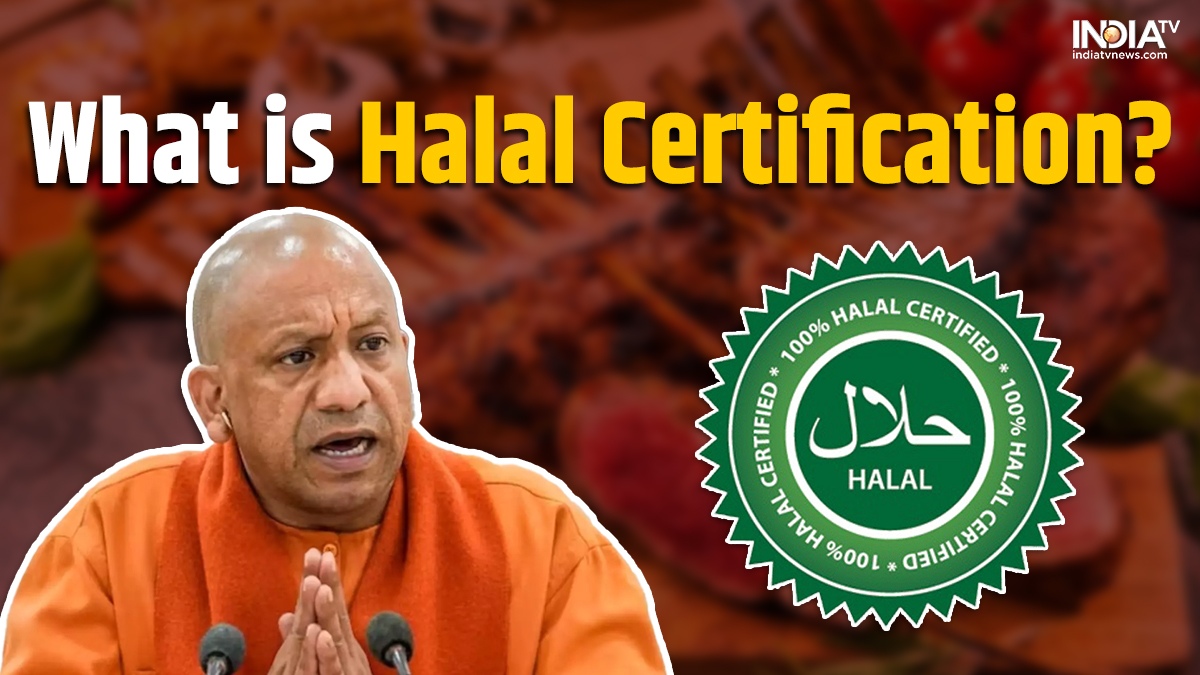The Uttar Pradesh government on Saturday banned the production, storage, distribution and sale of food products with halal certification with immediate effect while exempting products manufactured for export. In a statement, the state government alleged “malicious attempts” to discourage the use of products lacking a halal certificate not only seek “unfair financial benefits” but also form part of a “pre-planned strategy to sow class hatred, create divisions in society, and weaken the country” by "anti-national elements".
What is halal certification?
'Halal certification' is considered to be a guarantee that the product in question has been made according to Muslims. That is, there is no adulteration in it and no animal or its by-product has been used in it, which is considered 'haram' in Islam. Generally, Halal certification is for both veg and non-veg products.
Who does the certification?
In countries with Muslim population, if a company has to sell food items, it has to get a 'Halal certification'. Halal certification is given by the government in many Islamic countries around the world. Although in India FSSAI (Food Safety and Standards Authority of India) certifies all the food items but it does not give Halal certification. Still, some private companies in India provide Halal certification. These companies include Halal India Private Limited, Halal Certification Services India Private Limited, Jamiat Ulema-e-Hind and Jamiat Ulema-e-Hind Halal Trust.
What Halal means?
Actually Halal is an Arabic word which means 'lawful'. The term is primarily used to refer to Islam and its food laws (especially meat). In Muslim religion, strict rules have been made for not eating certain things. That is, eating these things is considered haram in Muslim religion. Like Muslims are allowed to eat Halal meat but not allowed to eat Jhatka meat.
What is the difference between Halal and Jhatka meat?
Halal meat is that in which the animal is killed by slowly cutting it with a sharp weapon and then its meat is available for eating. Jhatka meat is that in which the animal is cut in one stroke.
Politics in the name of Halal certification in UP
The UP government recently received information which indicated that products such as dairy items, sugar, bakery products, peppermint oil, salty ready-to-eat beverages, and edible oils are being labelled with a halal certification. “Additionally, certain medicines, medical devices, and cosmetic products are reported to feature the halal certificate on their packaging or labelling,” the statement said. Entities such as Halal India Private Limited Chennai, Jamiat Ulama-i-Hind Halal Trust Delhi, Halal Council of India Mumbai, Jamiat Ulama Maharashtra, and others have exploited religious sentiments to boost sales by providing halal certificates to customers of a specific religion, the government said citing the FIR.

